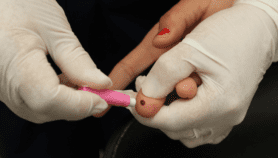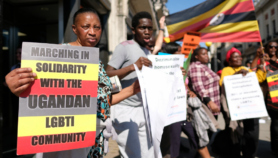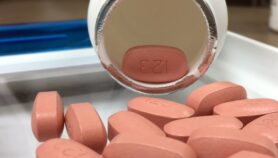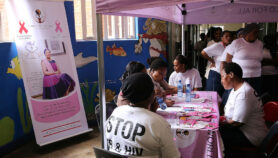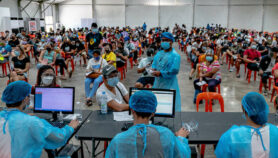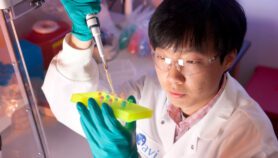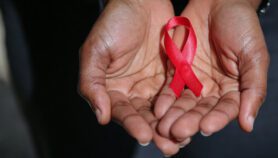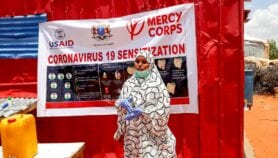By: Barbara Axt
Send to a friend
The details you provide on this page will not be used to send unsolicited email, and will not be sold to a 3rd party. See privacy policy.
Everyone confirmed HIV positive should receive drug treatment immediately after diagnosis, according to upcoming guidelines by the World Health Organization (WHO). These would bring the number of people eligible for treatment from about 28 to 37 million worldwide — although only about 15 million people are actually receiving treatment.
Current guidelines recommend starting antiretroviral treatment only in the most vulnerable groups among those infected with HIV. These include children, pregnant women, people with coinfections such as tuberculosis and those whose immune systems the infection has already weakened.
“The studies show it is very beneficial for people to start treatment soon after they find out that they’re HIV positive.”
Gottfried Hirnschall, WHO
But recent large studies show that beginning treatment when the immune system is still strong not only improves the health of patients, but can also help prevent HIV transmission to sexual partners. These findings have prompted a change in WHO guidelines, which were discussed at an International AIDS Society conference in Canada last week (19-22 July). The guidelines will be launched officially in December.
The START (Strategic Timing of AntiRetroviral Treatment) study followed 4,685 HIV-infected patients from 35 countries, and showed that early treatment reduces the risk of death or serious health problems by 57 per cent.
Another clinical trial, known as HPTN 052 (HIV Prevention Trials Network), began in 2005 to study 1,763 couples in which only one person was HIV positive. One group of patients started treatment immediately, while the others received drugs only once there was a fall in the number of white blood cells called CD4 cells that help protect against infection.
By 2011, the transmission rate among the couples on early treatment appeared 96 per cent lower than the other group’s — a result so impressive that, for ethical reasons, the treatment was then offered to all couples in the trial. The final results showed an average decrease of 93% in HIV transmission.
“The studies show it is very beneficial for people to start treatment soon after they find out that they’re HIV positive,” WHO HIV director Gottfried Hirnschall tells SciDev.Net. For the first time, WHO will also recommend antiretroviral treatment for people who are uninfected but who have a high risk of contamination, such as sex workers, he adds.
Sharonann Lynch, HIV/AIDS policy advisor at medical aid organisation Médecins Sans Frontières, is optimistic that most countries will be able to implement the new treatment guidelines. After all, she says, it is simpler to treat all HIV positive patients than to have to begin treatment based on CD4 cell counts.
The big challenge is finding out who needs treatment in the first place, Avihingsanon says. “Globally, only 50 per cent of the people who are HIV positive know their status. [WHO’s] target is to achieve 90 per cent,” Hirnschall adds.






